|
Outside of racing, each week tends to consist of two tough training sessions/workouts. The rest of the week is made up of easy/steady mileage, a long run, gym and cross training. My standard session days tend to fall on a Tuesday and a Friday to give me enough time between to recover and be ready to go again. Previously, for years I would do 3 sessions a week, but I definitely didn’t feel as though this worked for me. Frequently, one of those sessions would go well and the other two would be average or below average. This was because I was tired all the time. Due to the volume of each session being relatively high, I was never quite able to really push myself to that extra level. I was apprehensive about making the transition to 2 sessions a week, but I would now never go back. It works a lot better for me and my body. There isn’t a massive trend to which sessions I tend to do each week, but Tuesdays are more likely to be on the track and Fridays on the road or trail/grass. I like different sessions for different reasons, but definitely do have some stand out favourites. The general theme of my favourite sessions are the ones that are longer. To me, the longer the session the better, and the more at home I feel. I do however also enjoy the shorter and faster sessions, as I know I am working on my weaknesses which will help me become a faster athlete. Since changing coach at the end of last year, that is one of the biggest things I have learnt, that you have to do sessions that play to your strengths, but also sessions that work on your weaknesses and push you outside of your comfort zone. On the track, my favourite types of sessions are something along the lines of 1 mile tempo, followed by 200 reps with a final 1 mile tempo at the end, 400 reps, or 1200m reps at a range of paces from 1500m pace up to 10k pace. I love a track session as you can just switch off and tick off the laps. You also don’t have to worry about dodgy GPS or keeping an eye on your watch for distance, as a lap is 400m, it doesn’t change!
Off of the track, tempos are my absolute FAVOURITE sessions! There is just something absolutely dreamy about a tempo, especially a continuous one. Whether it is 10k or 8 miles, I love getting into that rhythm of pace and just ticking off the k’s. Even on the days where it doesn’t flow quite like you hope it will, there is an incredible sense of achievement when you finish the tempo and have managed to keep your body continuously flowing. I think the thing I like most about the longer sessions, is how you can just become completely entranced by your running and shut off to everything else around you. Some of my other favourite sessions have been, 3x3k or 8x3 mins with reps 3/5/7 being fast! Session days are definitely the best days of the week as they make you feel as though you are doing everything you can to make your ambitions and goals come true. Especially when the Olympics is on, and motivation is very high, all I want to do is session or race!
0 Comments
In line with the message of this blog, I will keep it a short one, because we don’t all have lots of spare time to sit around a read the rubbish that comes out of my mind. Plus, this time of the year is a very busy one as I am balancing, working, training, racing and my dissertation is due in 5 weeks! When there is lots going on in life, it is important to manage our time well, so how do I ensure I get everything done when time is tight? Prioritising To me, it is important to figure out what is the most urgent thing for me to do, what needs to be done as soon as I can, and what can be done at a later date. Once I have figured this out, I can prioritise my work. I tend to structure my day around training. So I set out when I need to get my training done, and then I slot everything else that needs to be done around that. For me, that allows me to add structure to my day without stressing about getting everything done. Currently my two main tasks are paid work and my dissertation. I tend to spend the mornings doing paid work and the afternoon doing my dissertation because these are currently the two most important things outside of training for me at the moment. Anything else, I fit in around that if I have time and use it as a break from the other two things. Planning. Planning is key. Without planning nothing gets done efficiently. Well, this is how I feel anyway. I go in to each day with a plan. I write out in my notes everything I need to get done and the order in which I need to do them. Firstly, this stops me from forgetting the things I needed to complete, and secondly it allows me to get through things efficiently throughout they day by having direction. As soon as I wake up I know the tasks ahead of me for that day and that means I can organise my time in a way to ensure I can complete them. I find write down my plan for the day makes me accountable to it and also gives me a sense of achievement when I am able to tick off the things I have successfully accomplished. Don’t stress.
This is a big one for me. Unless I have loads of time to complete something, I panic that I won’t be able to get it done. In my mind, 4 weeks to complete something doesn’t seem like a lot of time. I used to stress when I got my assessment guidelines 4 months before it was due and panic I didn’t have enough time, but this wasn’t productive. There is no point worrying about what you don’t have (enough time) as this will not help, instead, we must focus on the time we do have and use it wisely and efficiently. Stressing won’t get anything done, it will only make doing it less enjoyable. Start early. The last minute approach works for some, but definitely not for me. As an organised freak, I will to ensure I have given myself as much time as possible to work on something as I like to do it to the best of my ability. As soon as I get set a task, I get to work on it. This helps prevent me from feeling as though things are building up. If I try to do a little bit everyday, before long I have completed more than I realised without any stress, so this is how I operate. Be organised and start working on things well in advance. Sometimes, the thought of tackling 25 laps of the track can be a scary one. Psychologically it seems a lot further than 10k on the road, but it doesn’t need to. There are a few tricks I try to employ to make the 25-lap distance seem less daunting. Focus on one lap at a time. There is no point focusing on the 25 laps ahead of you when you are in the first 400m of the race. If you do this, the race will drag. Try to break it up. I focus on one lap at at a time. I think about keeping those legs spinning and aiming for consistent lap times. It is helpful when the timekeepers shout out the lap times as it allows you to focus on the individual laps and keeping them consistent, rather than the overall time ahead of you. Think of it a bit like a tough session. I don’t focus on how many reps I have left to go, but instead the one I am doing at that exact moment. More often than not you surprise yourself at how quickly each lap goes and before you know it you are over halfway. Ignore the lap counter for as long as you can. The lap counter in the 10,000m is something to avoid for as long as possible. If you take a peek too early, it can make the race drag on. I always try to ignore the lap counter. When I go around the start line, I purposely avoid looking at it and keep me eyes directed straight ahead. I try to do this until at least 5k, because then I know I am in the final half of the race and it is all downhill from there. This is how I mentally direct my focus away from the number of laps, because if I haven’t seen the lap counter, I genuinely forget how many laps I have actually done. It then comes as a nice surprise when you do look and have less than 10 laps to go. Work with someone.
If it is possible, it is great to work with someone or sit in with a group in a track 10k. This way you don’t find yourself doing completely all the work and you have someone else to drag you along and push when you are finding it tough. Often, if you find yourself say within a group, the time goes by a lot quicker as you are purely focused on sitting in and digging deep. It is not always possible to do this, but when it is, make the most of those around you. Feel good through 5k. Something a lot of people say, and one I am still learning to accept, is the need to feel good going through the 5k mark, and not cause this to alert you. If you go through 5k and you feel good, don’t be alarmed and think that means you need to push on now, go with it, because, within the next k or 2 you will undoubtedly start to feel the burn. Feeling strong through the 5k point is a very good sign that you are pacing the race well and still have more to give going into the last 5k. In my latest 5k I felt really good going through the 5k mark and in doing so maybe wasted energy surging at points I shouldn’t have because I felt so good. I think it is important to save that energy and use it to really push in the final few k when the pain sets in. There’s no getting away from the fact that 10,000m on the track is a tough distance. It always will be, no matter how fit you are. These are however a few things I do to make those laps seem less daunting. Quite frequently, people ask me about my diet as a runner. The first thing they ask is what I do and don’t allow myself to eat when I’m training and racing, but the first thing I say is, I eat whatever I want. The most important part of my diet is ensuring it is varied and balanced, and I try to always cook from scratch. I also really enjoy cooking so this isn’t a chore for me, it’s just ensuring on busy days I have a quick meal to prep so I don’t spend too much time in the kitchen. Fresh food. One of the most important things I try to do is eat a lot of fresh foods. This includes plenty of fruit and vegetables in order to incorporate as many vitamins and minerals in my meals as possible. This can be helped by adding as many vegetables as you reasonably can to main meals as well as fruit as snacks. If I make a curry, I will always try to fill it up with extra vegetables, such as peppers or aubergines or spinach. Quite frequently, I will have at least 3-5 different vegetables in my meals. I find incorporating lots of fresh fruit and vegetables into my diet makes me feel more alert and energetic, both physically and mentally. It keeps my diet high in fibre too, something a lot of people neglect. I do also eat meat quite regularly but I firmly believe I would rather eat good quality meat where animal welfare has been a high priority or not eat it at all. Therefore I always buy fresh meat from local butchers or meat that is organic. Variety. I used to be bad at spicing up my meals. I had the same go to dinners everyday of each week. I had a few recipes that I constantly ate on repeat. Whilst this is not the end of the world, it does mean I was missing out on getting the different nutrients other foods provide. As a result, my body wasn’t getting some of the goodness it needed. I now try and cook different recipes regularly to avoid lacking some nutrients and also to keep cooking interesting. I LOVE a new recipe book. When I plan my meals for the week ahead of my delivery shop I aim for 2-3 vegetarian/vegan meals, one oily fish dish, a red meat dish and then maybe chicken or whatever else I fancy. Cook from scratch.
I like to eat out on occasion, but most of the time I cook at home. One thing I do for definite is always cook my meals from scratch. For example, a go to meal for me is pasta pesto with roasted vegetables and feta. I try to make my own pesto and make it in bulk then freeze it for convenience. If I don’t have time to make my pesto, I always try to buy the fresh one to avoid any added long life additives. I like to know what is going in my meals so I can be sure it is all good quality, wholesome ands nutritious ingredients. Balance. For me, balance is incredibly important. It is vital to ensure that I eat a little bit of everything and don’t cut any particular food or food group out of my diet. This was something I struggled with in the past and as a consequence I developed quite a few deficiencies. For this reason, I now focus on allowing myself to eat whatever I want, whenever I want to. This way I keep my stores topped up with everything I need and I also don’t develop massive cravings for having deprived myself of certain foods. This also helps me keep a healthy and rational relationship with food. Organised and prepared. This is something that lends itself nicely to my personality. I love to be organised. When I do my supermarket shop I make a list that covers all my meals for the week. If I am busy on certain days I make sure I factor in a quick meal for that day, and if I have a bit more time I let myself get a bit more creative in the kitchen. This makes sure I don’t suddenly get home to an empty fridge and end up eating toast for dinner. After a busy day training, I need to ensure I have a decent meal to kickstart the recovery process. Ultimately, what I eat is far from rocket science. I eat whatever I want, whilst ensuring I have a fresh, varied, and balanced diet. This year was my third British Champs but my first Olympic Trials meet. Despite it being the Olympic trials, I felt a lot less nervous than the previous two years I competed at the British Champs. Whilst I felt more nervous than my other races this year, in comparison to other years, I was very calm. I had some nerves in my system, but they weren’t negative or self doubting as they have been previously. In pother years, the champs have been a bit of intimidating shock. It tended to be the only race of the year where I would compete against the best girls in the country. However, this year, I had raced against most of the girls at all my previous races. This meant, the champs felt like just another race, and I felt I had earned my spot on that start line. My main aim was to run strong. I ran a poor race last year and didn’t have the strength to hold on to the others in the field, and I DNF’d the previous year due to collapsing in the heat. This year, I wanted to cross the finish line knowing I had done myself justice and ran a strong race, and I believe I did this. I didn’t get overtaken at all throughout the race and made sure I was able to pick people off, something I haven’t done in previous years. The race itself felt quite tough. It was surprisingly windy up the home straight and the temperature was pretty hot. Being the first race of the year where it has been hot and the race has taken place in the middle of the afternoon was a bit of a shock to the system. Despite this, I was pleased to clock 16:01 (which was my PB just 6 weeks ago) and finish 7th in tough conditions. I definitely feel there is a PB inside of these legs!
One thing I definitely came away from the race feeling was inspired. Watching the likes of Jess Judd consolidate her position on Team GB for a second event was amazing to see. Having admired Jess from such a young age, and to see her achieving her dreams now, inspires me to keep working hard for as long as I need to, despite what setbacks I may face. Being in a race with people who are going to the Olympics makes you realise that the dream could one day be the reality if you keep working hard for it, you just never know. Now both champs races are out the way, it’s back to work to try and get that PB down over the rest of the season. |
Hannah IrwinI love to run and I love to write, so I write about running! Archives
March 2023
Categories |
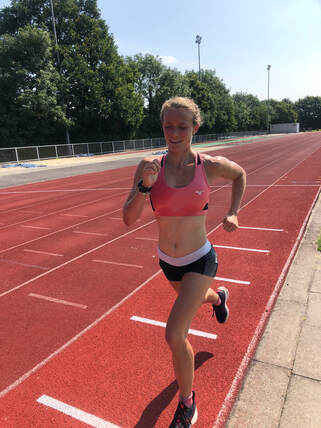


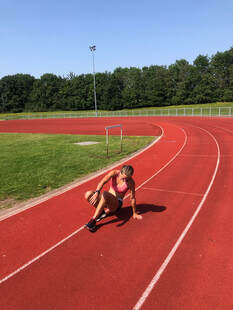
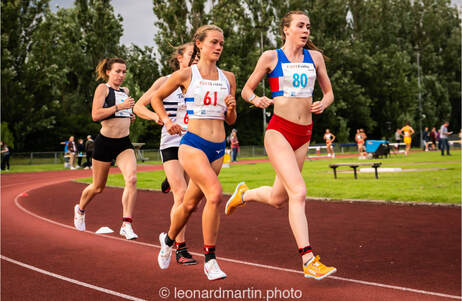
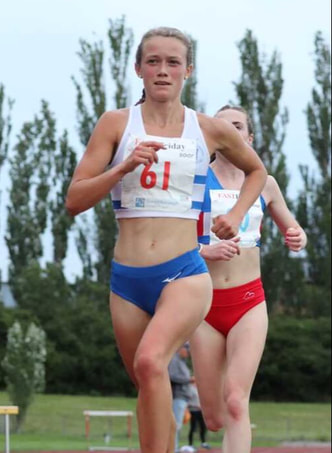
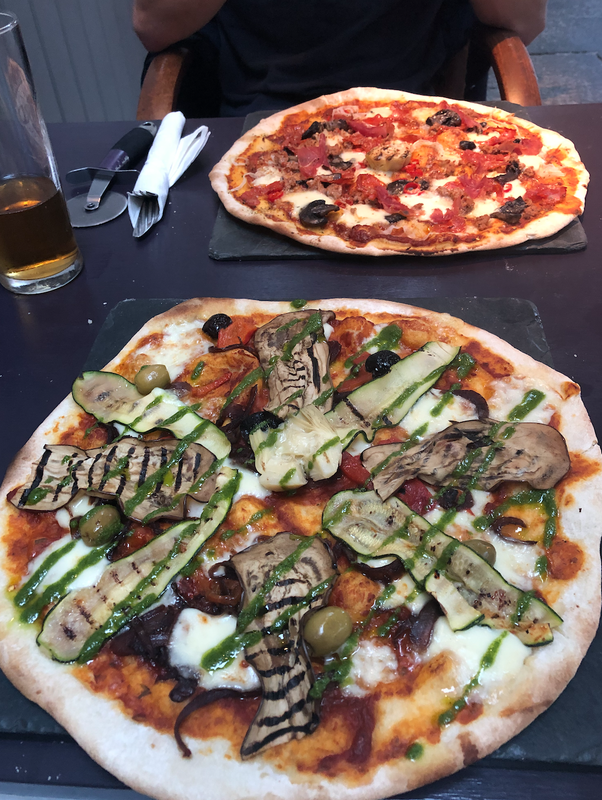
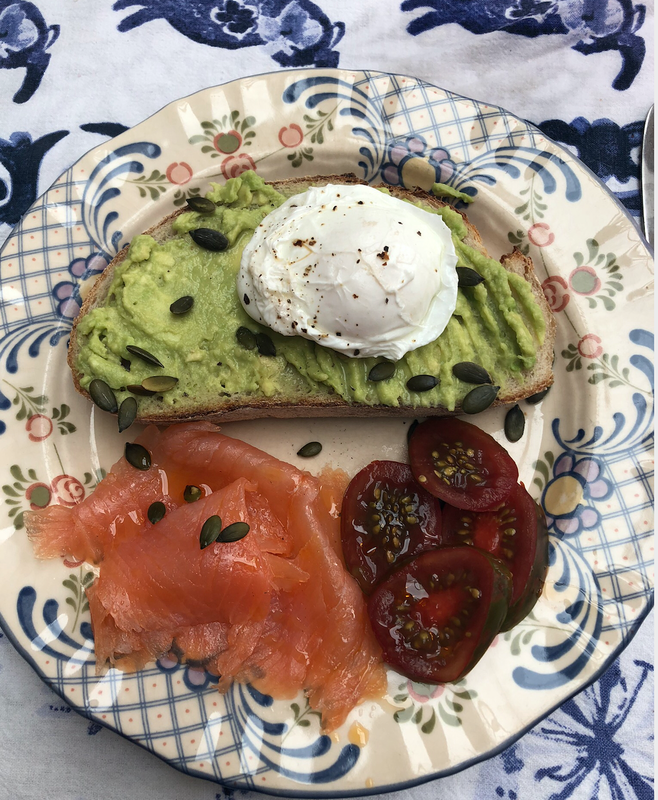
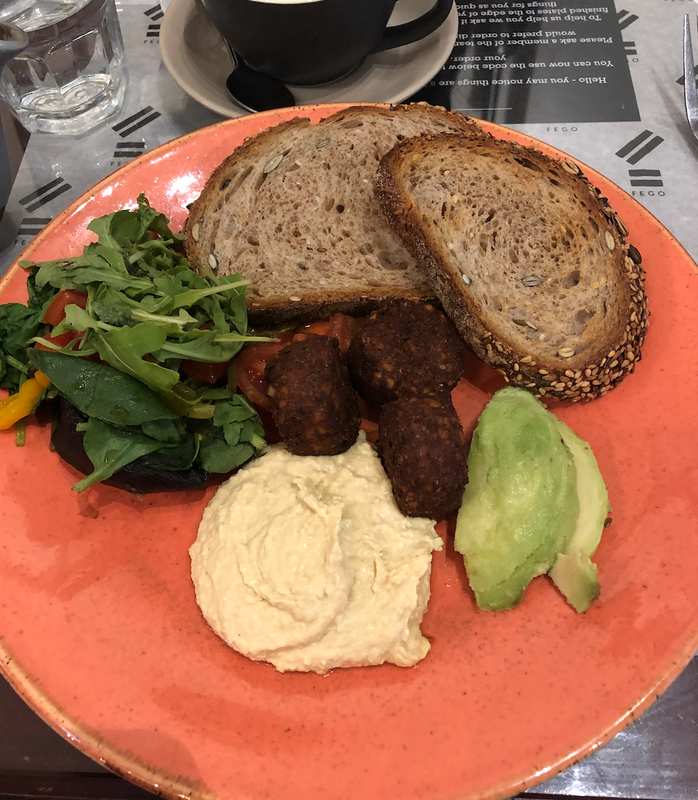
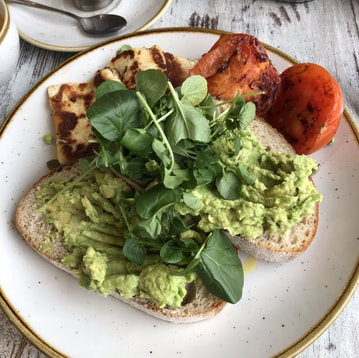
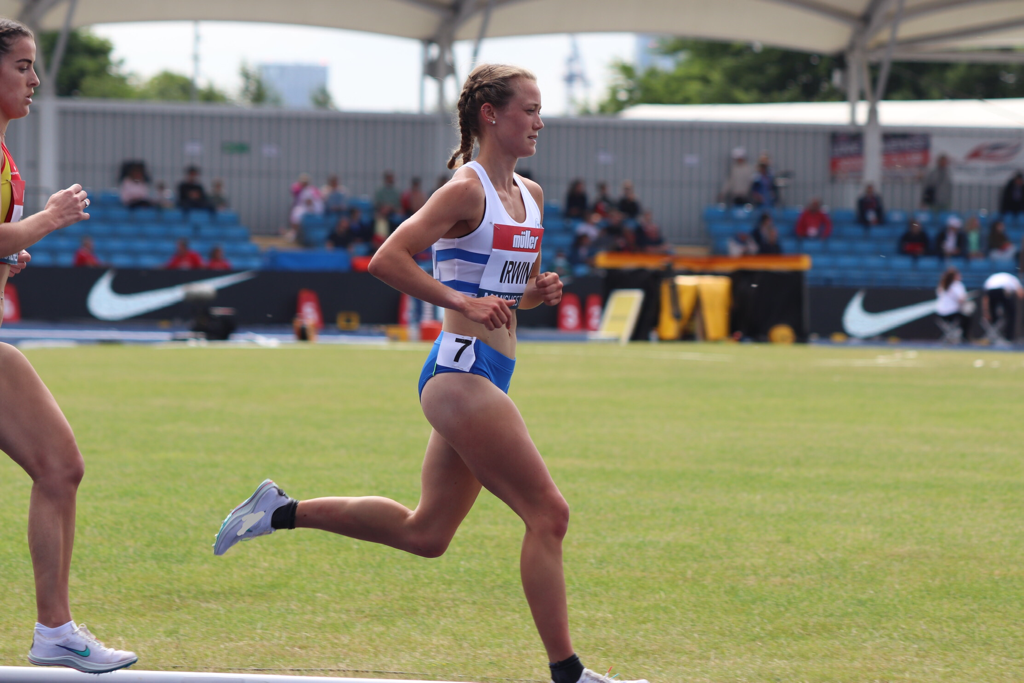
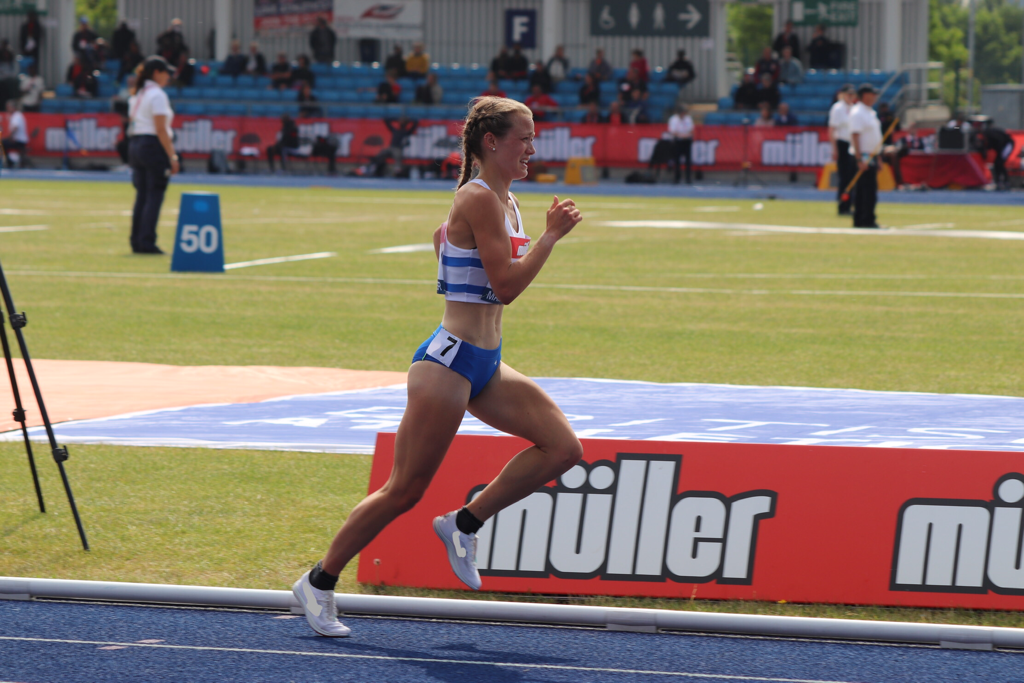
 RSS Feed
RSS Feed
